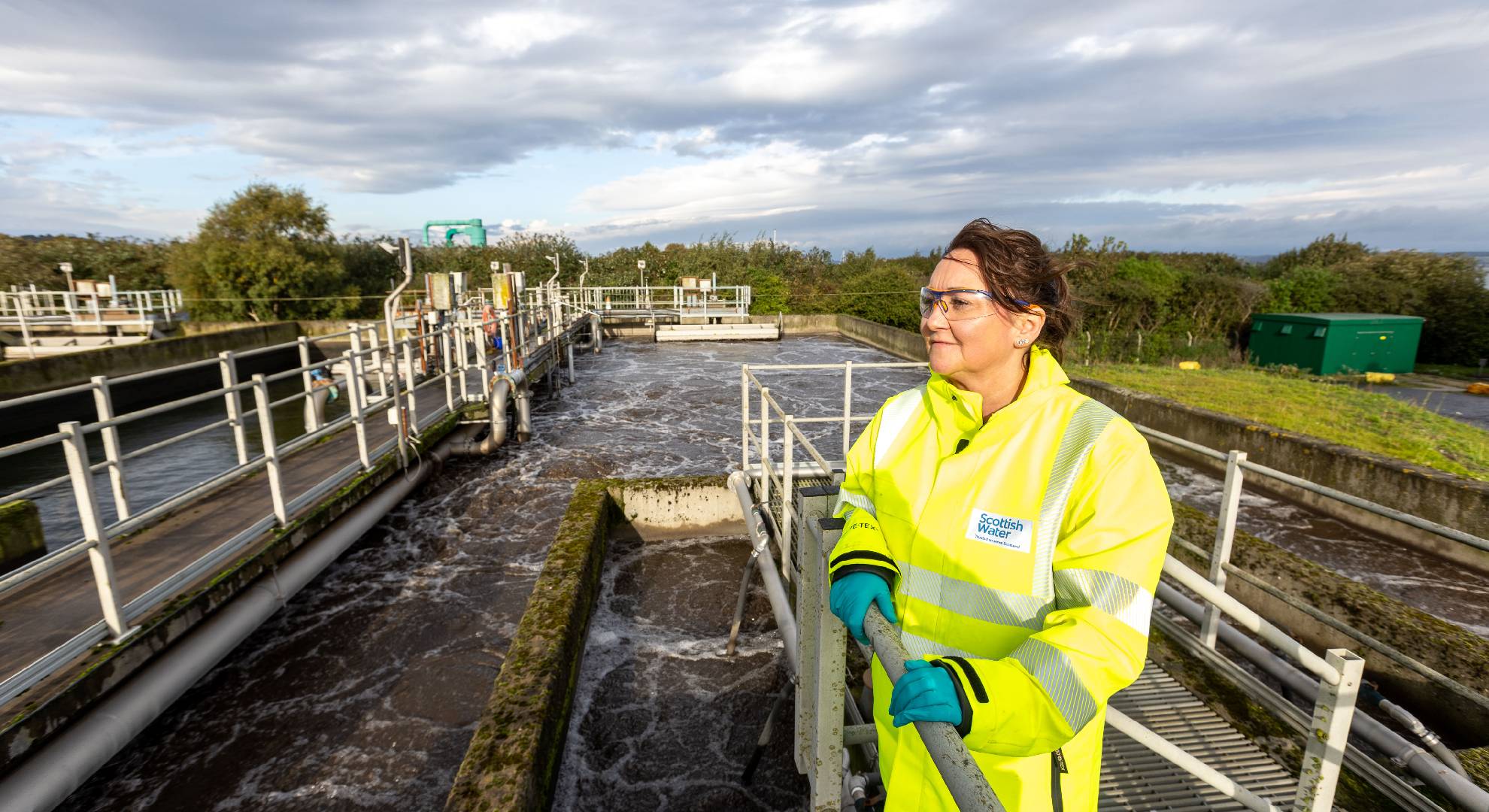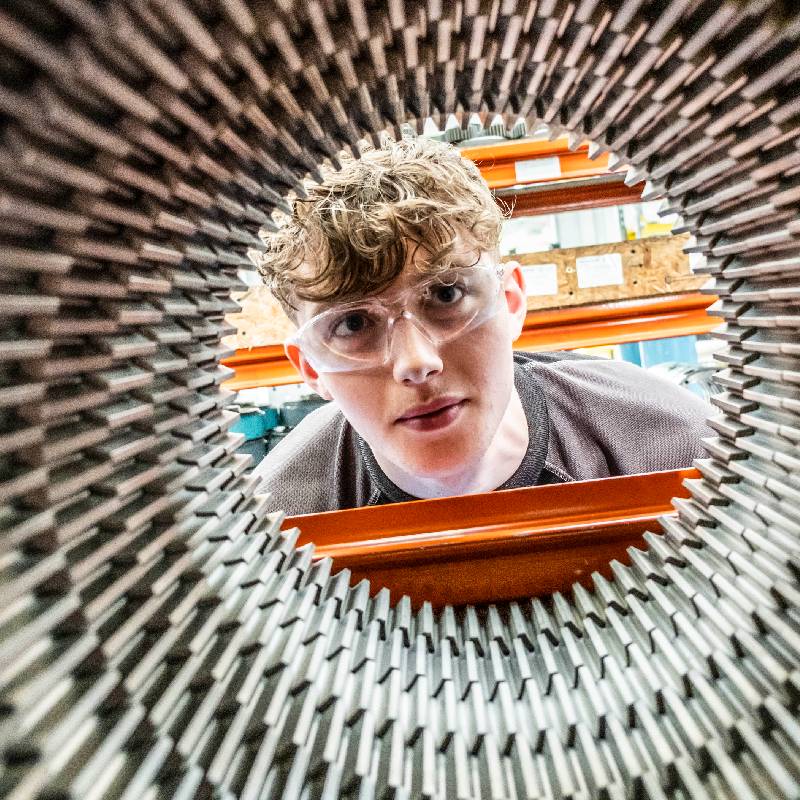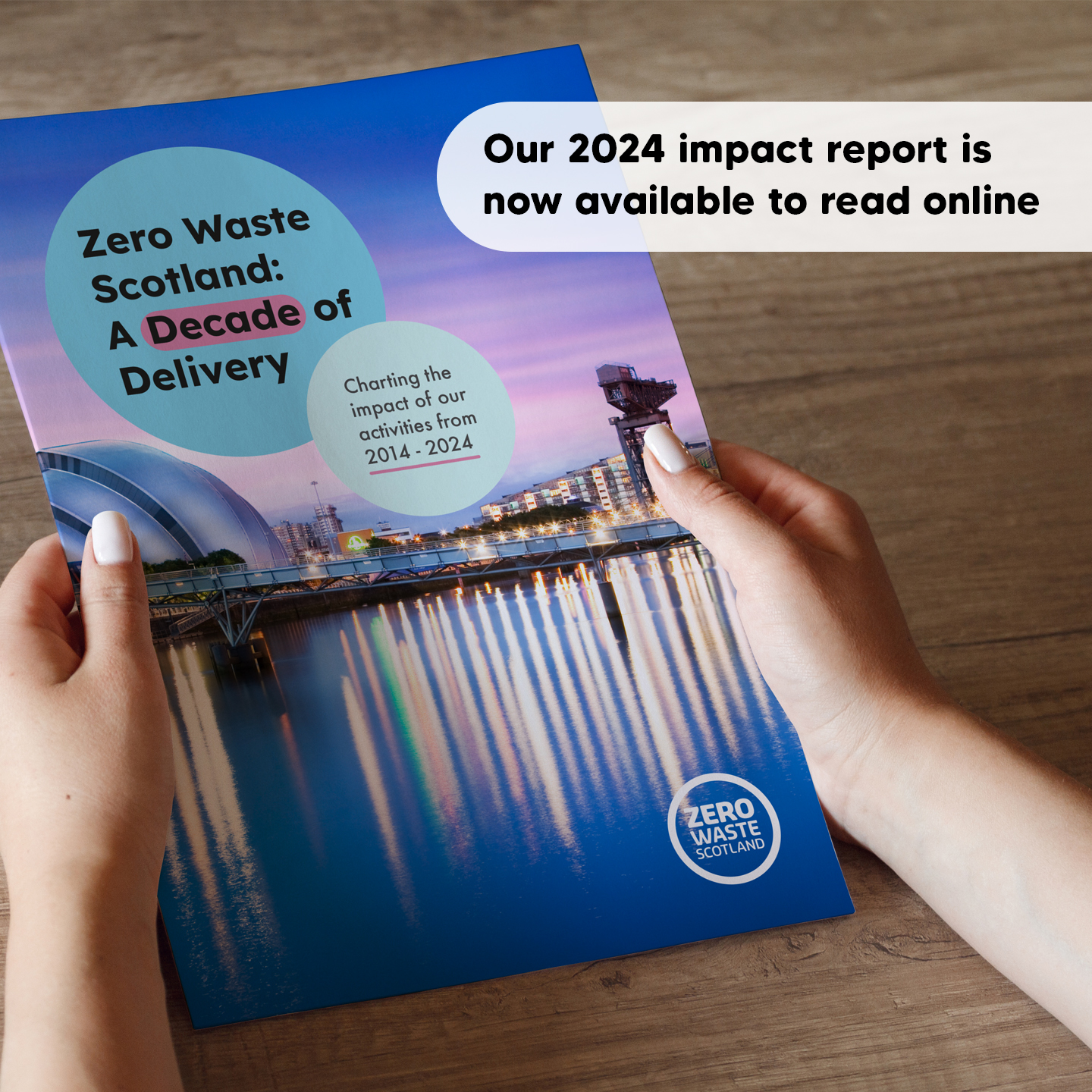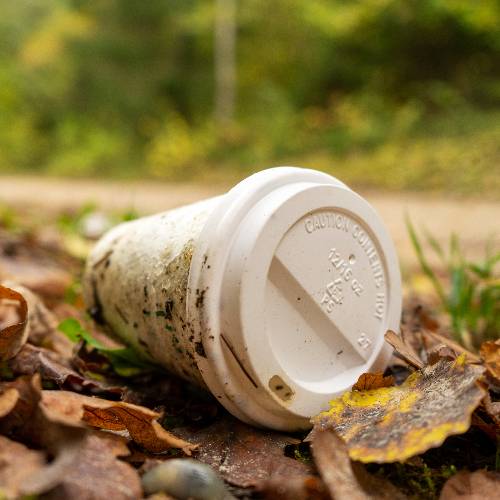
Funding helps Scottish Water embrace circularity for the water Scotland depends on
Scottish Water is a publicly owned utility and sole provider of water and wastewater services in Scotland. Embracing the circular economy is one of its ten strategic objectives.
Delivering clear, fresh drinking water
Servicing 2.62 million households and 159,219 businesses, the organisation is trusted to care for the water on which Scotland depends. Every day Scottish Water delivers 1.51 billion litres of clear, fresh drinking water and removes 1.07 billion litres of wastewater.
This is treated, useful resources are recovered, and is safely returned to the environment. In a bid to keep assets performing well, work with nature, and view waste as an opportunity, Zero Waste Scotland’s Circular Economy Business Support (CEBS) has helped Scottish Water with three circular economy projects: grit reuse, an employee training module and an investigation into the use of plastics in its laboratories.
Grant Hemple, Project Manager in the Research and Innovation team at Scottish Water, said: “These three projects sit within our strategic research and innovation programme which aims to generate new knowledge to help us deliver strategic ambitions that focus on the Circular Economy, Net Zero, Wastewater and Water.”
The grit recycling project sought to view waste as an opportunity by reusing and upcycling collected grit. It enters sewers from surface water runoff and must be removed at wastewater treatment works to avoid costly downstream impacts to the plant and equipment.
Currently, the grit removed from the system is sent to landfill and composting – at considerable cost and carbon impact due to landfill emissions. Last year, over 7,00 tonnes of grit and sewage-related debris were removed at wastewater treatment works and this presents a great opportunity to contribute to the construction industry in Scotland.
Over the next year, Scottish Water will be adding grit to the Scottish recycled aggregates supply chain where it can be used in many different projects.
Producing an interactive online training module
One of Scottish Water's circular economy objectives is to embed circularity into processes, skills and decision-making. Zero Waste Scotland worked with Scottish Water to identify that creating a bespoke training module would provide a strong building block to build a common understanding with our employees and introduce a shared purpose on circularity.
The collaboration produced an interactive online training module that is available to the 4,473 people directly employed by the utility. Recognising the need for circular economy training that applies a Scottish context, the module was designed in two main parts. The first part focussed more generally on circularity and Scotland’s legislative direction.
The second part was organisationally specific, which gives any Scottish organisation the possibility to build upon it and customize the content based on their requirements. Zero Waste Scotland and Scottish Water are both aiming to reduce the impact of plastic on the Environment. They are looking to avoid single-use items, improve the materials used, look for reusable alternatives and address disposal at end of life.
The plastic audit project sought to investigate the usage of plastics in Scottish Water's two main laboratories. From this Scottish Water was able to draw out how many products were single-use, the plastic material and quality of a product. They were also able to determine the plastic packaging used for each product and if it was recyclable.
Some of the plastic items and sample bottles could be machine washed and offer potential cost and carbon savings. Additionally, the project has created a plastics audit guide that can be used and built upon by any Scottish organization wishing to conduct a similar exercise.
The CEBS support has been fundamental to the success of Scottish Water’s circular economy ambitions, and Tamsyn Kennedy, Circular Economy Lead in Scottish Water’s Research and Innovation Team, reflects: “Zero Waste Scotland’s support has helped shape our circular thinking. The funding allowed us to put resource into changing our practices and connected us to external expertise, helping us meet our circular goals.”
Scottish Water is passionate about creating a flourishing circular Scotland and hopes to inspire and support businesses looking to make change. Tamsyn said: “I’ve been in the industry for 20 years and have seen so much change over that time. The importance of sustainability and how businesses can adapt to help the environment, reduce carbon emissions and work towards a net zero goal has become paramount to business development.”
“I would do two things; look at design first. If you don’t design it properly it can’t enter the circular process, and secondly, I’d look in the bin and consider carefully what you can do with the waste.”






